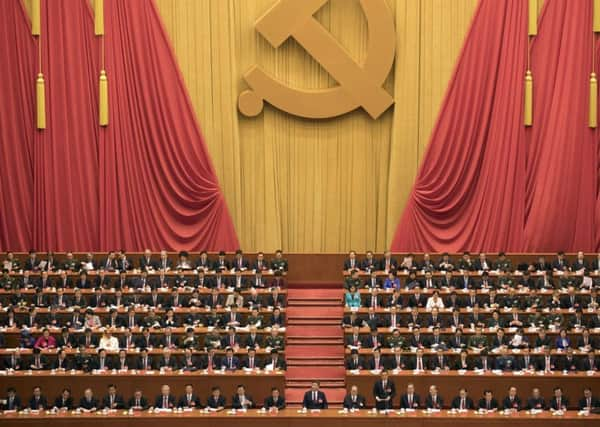Sir Keith Burnett: Why Sheffield's future is interwoven with China's ambitions


The problem was how to make usable, flexible structures from a high-performance glass-like material to be used in the automotive or aerospace industry. The solution was a loom.
Our engineers needed to weave the fibres of the future. Yorkshire knows a thing or two about weaving. We contacted a local company and told them this was going to be a cloth like no other. The insights of high-tech research and the latest AI simulations led to the kind of process within high-value manufacturing that some are calling Industry 4.0.
Advertisement
Hide AdAdvertisement
Hide AdThe thing about this new era in manufacturing is that it uses automation, big data, computer learning and VR to find the secrets to transform productivity and new products.
That information, though, may well be dispersed. Rolls-Royce learns in real time about the performance of its engines. Siemens brings companies, researchers and students together through its MindSphere – the first hub of which it has put into our Diamond teaching space in Sheffield. But the insights could come from anywhere in the world.
Why does this matter? Post-Brexit, we will have to take our economy into an increasingly competitive world. The big question won’t be about One Yorkshire. We will have to hold our own in Beijing as well as Bradford, Shanghai as well as Sheffield.
Can we do that? Well only if we recognise that the value manufacturing of the future will not be produced in isolation.
Advertisement
Hide AdAdvertisement
Hide AdI’m writing this article on one of the many high-speed trains out of Beijing’s 18 platform station, heading to a conference in Xi’an. The digital display in the carriage says that we are traveling at 300km an hour, but the journey is smooth and comfortable as I speed through unknown cities each the size of Leeds or Birmingham. When I think of the thousands of miles of track and vast transport hubs China has built while we have been arguing about HS2, I shake my head.
China used to be called “the land of the bike”, and documentaries showed paddy fields full of rural workers. But that picture is no more typical of urban China today than the idea that England is just Downton Abbey. Beijing, a city with a population twice the size of the whole of the UK, has changed beyond all recognition in the 10 years I have been coming here.
And you have to take your hat off to what has been achieved. After the Second World War, the average life expectancy in China was 36 and only one person in five could read and write. Today the average life span is 76 and 95 per cent of the population is literate. Sanitation has been improved in even the rural areas. Digital connectivity is superb.
But it is the future that matters. China is transforming its economy away from a dependence on polluting inefficient factories towards high-tech innovation. Like us, it worries about cheap imports from lower-wage economies. And it wants to make sure it can keep on making better lives for its people, with clean air, jobs for the kids and healthcare for all.
Advertisement
Hide AdAdvertisement
Hide AdTo do this, China is investing big time in new technologies with the same determination with which it built all that train track. By 2020, China will spend more on science than the USA.
As part of this visit, I have been asked to address the Vice-Premier of this nation of 1.4 billion people on how we can work and trade together in the interests of both our citizens. I will be talking about what we can do together which will benefit the people and economies of both nations. I’ll also visit China’s industrial research centres for battery cars and aerospace, knowing that the combination of British innovation and Chinese dynamism is a global winner.
Working with China opens up other opportunities too. Once upon a time, the East looked to Washington. Now the whole of Asia pays attention to Beijing.
China is extending its railways into the ‘Belt and Road’ countries which were its historic trading route. If Yorkshire is smart, it will be looking hard at how we can be part of this emerging focus of economic power.
Advertisement
Hide AdAdvertisement
Hide AdHow will we do that? I’d say take a lesson from the Chinese. This country was once known for its Great Wall. Today it is building roads and rail, airports and digital infrastructure. It is looking outwards. It doesn’t just discuss the future, it gets building.
What about us? Will we realise that our future prosperity means we have to raise our sights and join with others not only from Barnsley but from Beijing?
The world is changing. We have a chance to partner with one of the great forces of the world. We should seize it.
Professor Sir Keith Burnett is vice chancellor of the University of Sheffield.